SPEAKERS
University of Toronto astronomers are available to visit your school or community group to talk about astronomy and answer questions. Whether you’d like a short discussion about meteors with your grade one class or an in-depth talk on the nature of dark energy for your amateur astronomy group, we’ve got you covered. Best of all, this service is free within the Toronto area (but subject to the availability of speakers).
You can preview the list of speakers below, then click below to request a speaker:
Request a Speaker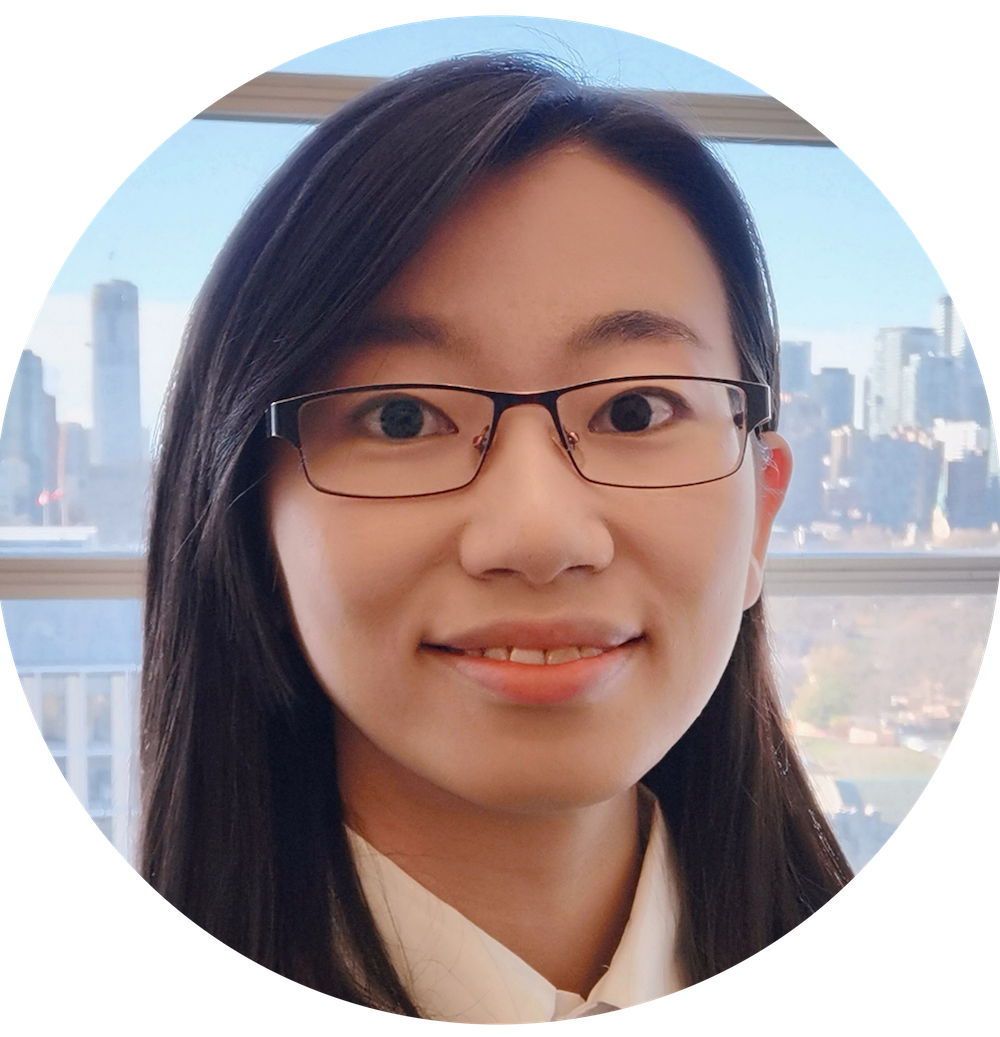
Dr. Jennifer Chan
Talk Titles:
Seeing the Unseen: Mapping the Invisible Forces in Space
Explore how modern technology allows scientists to map invisible forces like magnetic fields the permeate the Universe and influence a wide range of astrophysical phenomena.
Cosmic Time Travel : Peering Back to the Universe’s First Light
Take a journey through time as we look back at the early Universe and how radio signals from billions of years ago help us understand its evolution.
The Cosmic Journey of Light: How Transport of Radiation Reveals the Universe’s Past
Follow the path of light across the Universe and discover how scientists use radiation transport to look back in time and uncover the origins of cosmic structures.
Whispers from the Cosmos: Listening to the Universe in Radio Waves
Explore how radio waves from the farthest reaches of the Universe carry messages that reveal its deepest mysteries, from the birth of galaxies to cosmic magnetism.
Talk Languages:
English, Cantonese, Mandarin
Jennifer Chan is a postdoctoral researcher at Canadian Institute of Theoretical Astrophysics (CITA) and the Dunlap Institute of Astronomy & Astrophysics at University of Toronto. She received her Ph.D. and MS.c. in Astrophysics at the University College London, and Bachelor in Physics at the University of Oxford. Jennifer studies magnetic fields in the Universe, exploring how they formed, evolved, and influence the cosmos today. She also investigates the early eras in the Universe’s history, when the first stars and galaxies were beginning to emerge and grow. To probe these cosmic phenomena, she examines the journey of light through space and time, using it as a tool to reveal the structures and processes that have shaped the Universe both near and far!

Dr. Renée Hložek
Talk Titles:
The Dark and Beautiful universe
Watching the Fiery Beginnings of the Universe from the Atacama Desert
Why STEM Needs Diversity and What We Can Do to Help
Dark Matter and Dark Energy: Why Are They Different and Why You Should Care!
Talk Languages:
English, French
Renée Hlozek is an Assistant Professor of Astrophysics at the Dunlap Institute for Astronomy and Astrophysics within the Department of Astronomy and Astrophysics at the University of Toronto. Her research focuses on theoretical cosmology and ‘astro-statistics’; she answers questions about the structure of the universe, its initial conditions and its eventual fate. She uses data from telescopes around the world like the Atacama Cosmology Telescope that measures microwave light left over from the Big Bang; and the Large Synoptic Survey Telescope which is currently under construction and will measure the night sky in visible light, scanning the whole sky once every three days. She is a Rhodes Scholar and a TED Senior Fellow, and was named one of the Mail and Guardian’s 200 Young South Africans for 2012.
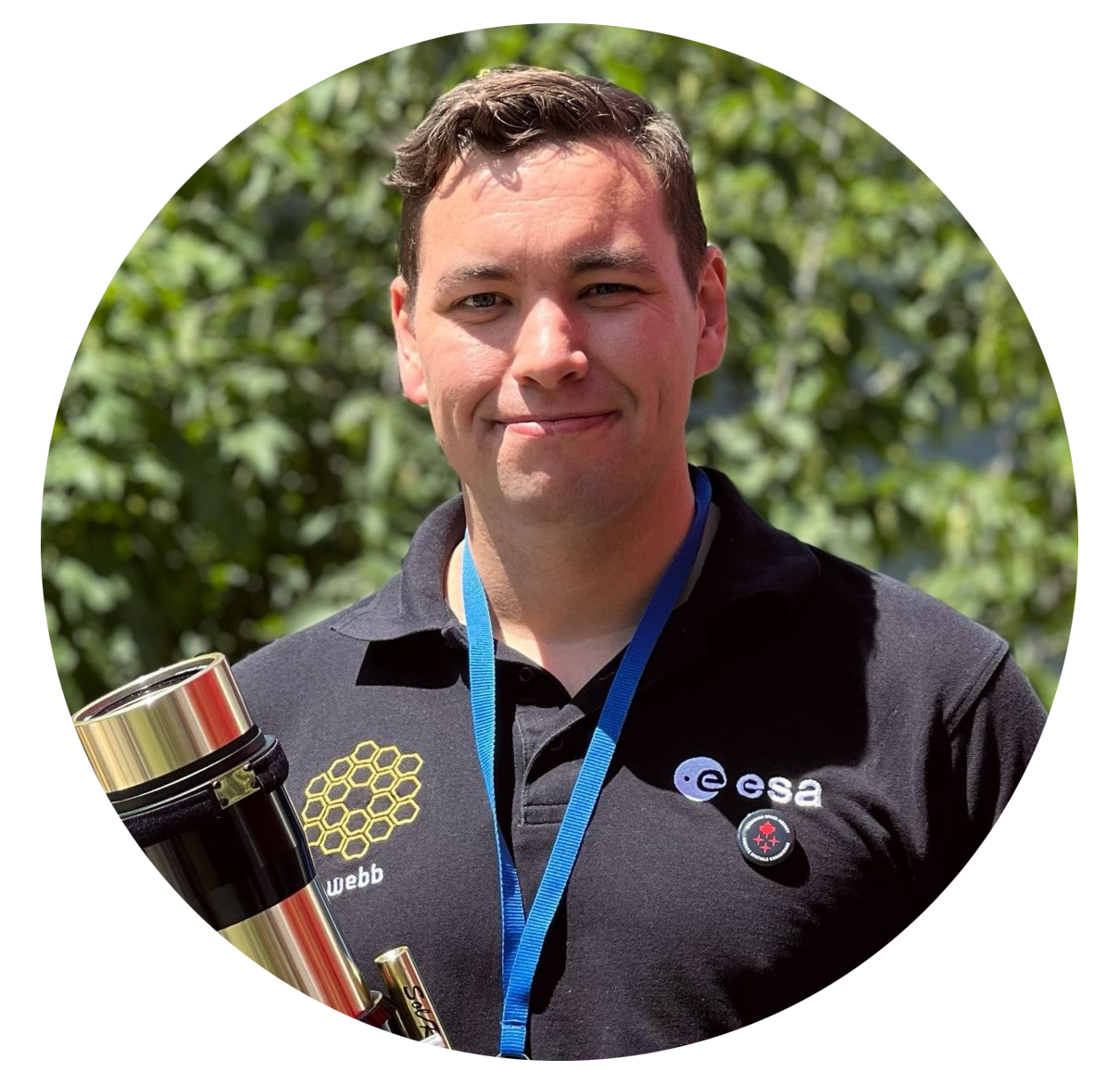
Max King(virtual lectures only)
Talk Titles:
Mission to Pluto, from Napkins to New Horizons
Let’s journey to the edge of the solar system to explore Pluto, and learn about how we build the amazing spacecraft that take us to new worlds.
The Hubble Telescope: 100 Years of Light
Learn the full story of the world’s most famous telescope, and the people behind it. We’ll learn about its creation, its discoveries, and its legacy for a peaceful use of outer space.
Our Past Futures In Space
This talk explores the many ways that humans have imagined ourselves in space, from Jules Verne in the 19th century through to modern day sci-fi . We will explore how science fiction and science fact have shaped space exploration to date; and, what the next century may look like as we begin to establish a permanent human presence in space.
Talk Languages:
English
Max King is an accomplished aerospace engineer, a seasoned science communicator, and inspiring public speaker. Max has been a part of missions ranging from CubeSats to Canadarm3, and is a vocal advocate for the peaceful exploration of outer space. He holds a Bachelor’s degree in Materials Engineering from the University of Alberta, and a Master of Applied Science degree in Aerospace Engineering from the University of Toronto. Currently working on the Artemis Program for the Canadian Space Agency, he works to ensure the safety of Canadarm3 and the astronauts it will serve aboard the Lunar Gateway. He is a freelance writer, with contributions to The Planetary Society, science publications, and educational organizations. Max is a member of The Planetary Society’s New Millennium Committee, and passionate about connecting people with the human story of space exploration.
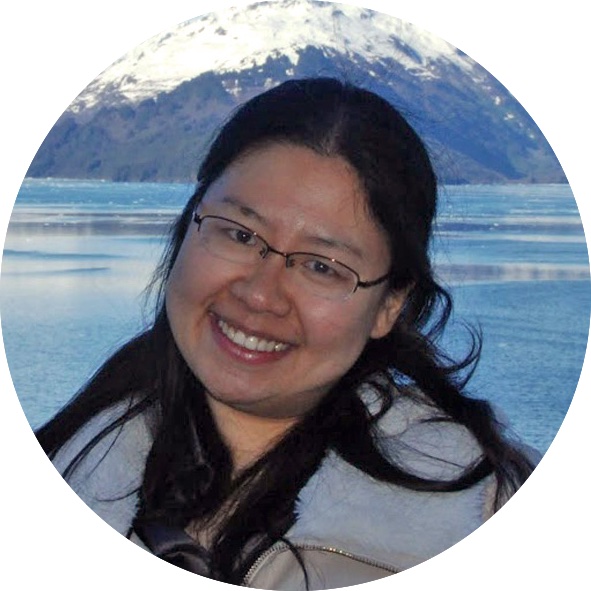
Dr. Ting Li
Talk Titles:
Discover the Universe with Astronomical Observations
Learn about the amazing discoveries made possible by astronomical observations. From the depths of space to the tiniest subatomic particles, we will explore the universe through the eyes of telescopes and other instruments. Join us to discover the wonders of the cosmos and learn how astronomers use observations to expand our understanding of the universe.
Introduction to Ancient and Modern Cosmology
Gain an understanding of cosmology, both ancient and modern. We will explore the history of how humans have sought to explain the origins and structure of the universe, from ancient myths to modern scientific theories. Join us to learn about the latest discoveries and theories in cosmology, including dark matter, dark energy, and the big bang.
The Biggest Two Mysterious in the Universe: Dark Matter and Dark Energy
Attendees will delve into the mysteries of dark matter and dark energy, two of the biggest unknowns in the universe. We will explore what we know about these phenomena and how they are observed in the cosmos. We will also discuss current theories and ongoing research in the quest to understand these elusive substances.
The Fastest Star Rejected by Milky Way’s Super Massive Black Hole
Attendees will be taken on a journey through space to explore the incredible story of S5-HVS1, the fastest star ever observed to be rejected by the Milky Way’s supermassive black hole. We will discuss the fascinating properties of this star and the implications of its ejection for our understanding of the Milky Way’s central region.
Rivers in the Sky: Milky Way’s Past and Present
Learn about the fascinating concept of “rivers in the sky,” otherwise known as stellar streams. These streams are remnants of dwarf galaxies or star clusters that have been torn apart by the gravitational forces of the Milky Way. We will explore the history of the Milky Way and how these streams can provide insight into its formation and evolution.
Talk Languages:
English, Mandarin
Ting Li is an Assistant Professor at the David A. Dunlap Department of Astronomy & Astrophysics. Her research focuses on near-field cosmology. In particular, she studies the stars in the Milky Way Galaxy and nearby galaxies to understand how they form and to understand the nature of dark matter. She specializes in analyzing large data sets from imaging surveys of wide areas of the sky and also performs traditional astronomical observations with the largest optical telescopes all over the world. Ting also builds astronomical instruments and contributes to infrastructure work for large-area sky surveys.
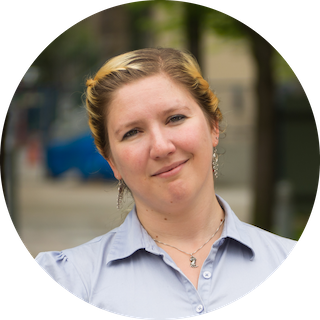
Dr. Ilana MacDonald
Talk Titles:
Gravity: From Falling Apples to Ripples in Spacetime
The ideas about why things fall to the ground or move in the sky have changed throughout history. In this talk we will learn about how the ancients explained gravity and how those ideas evolved into our current understanding.
Scales of the Universe
How big is the Earth compared to the Sun? How far is the nearest star? What’s the farthest thing we can see? In this talk, we will find our place in the universe by exploring it at different scales.
All You Ever Wanted to Know about Black Holes
Black holes are some of the strangest objects in the universe, collapsed points of infinite density from which even light cannot escape! We will learn what they are, how they form, and where you can find them. Watch Ilana’s Cosmos from your Couch episode on this topic here!
The Odyssey of the Voyagers
In 1977, two spacecraft were launched from the Earth with the mission to explore the planets of our outer solar system. In this talk, we will follow their voyages through space, learn about their discoveries and their current legacy.
Talk Languages:
English & French
Ilana MacDonald grew up in a small town in rural Quebec where she was inspired by the clear night skies and her father’s “midlife crisis telescope” to study Astronomy. She completed her Bachelors of Science in Physics at Bishop’s University, and her Doctorate in Astronomy & Astrophysics at the University of Toronto, studying under Prof. Harald Pfeiffer. Her doctoral research topic was to test the accuracy of models of ripples in spacetime, that is, gravitational waves, from binary black holes for detectors such as LIGO. She is currently the Public Outreach, Communications, and Events Strategist for the Dunlap Institute for Astronomy & Astrophysics, where she gets to spend her days finding cool ways to spread the love and knowledge of astronomy.
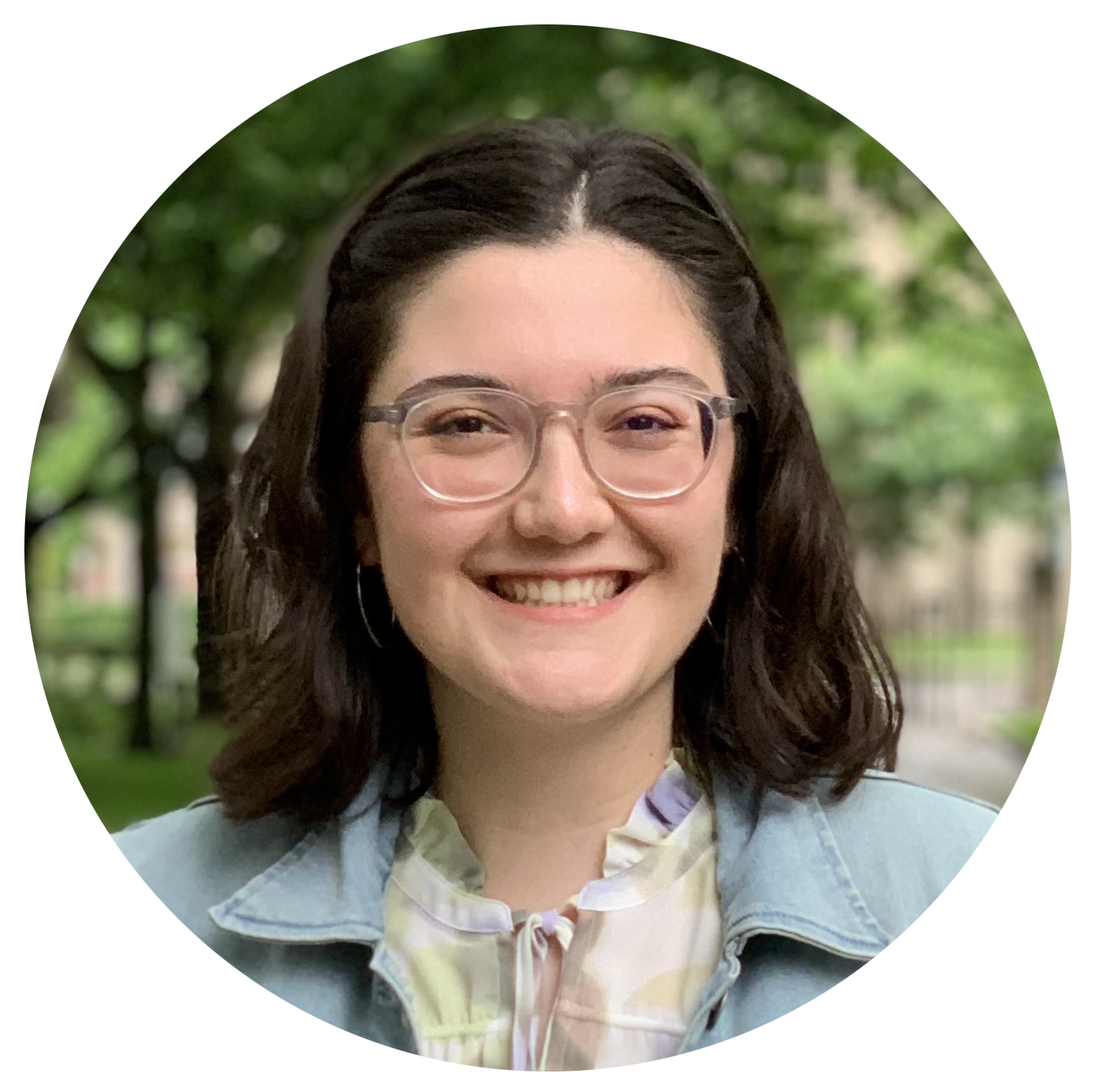
Daniella Morrone
Talk Titles:
Finding our place in the cosmos: How the Earth, the Sun, and the Solar System compare to the rest of the known universe
We learn about space from a very young age. Through school, we study the Sun and the Solar System. But how does our cosmic neighbourhood compare to what’s beyond? Do we pale in comparison or are we unique in ways that we never thought possible? In this talk, we shed some light on where our Solar System stands on the grand scale of the universe.
Astronomy in the Movies: Fiction vs. Reality
Representation of astronomy is everywhere in the media. Whether it’s a first contact science fiction movie, or a historical adaptation of the space race, we are bombarded with content that are not necessarily accurate representations of what astronomy is. In this talk, we debunk some common movie tropes around astronomy representation and investigate what real life astronomy actually looks like.
Talk Languages:
English
Daniella Morrone is a recent Bachelor’s graduate from the University of Toronto, completing the Specialist program in Astronomy & Physics, as well as Minor programs in Mathematics and French Language. Daniella is currently working in astronomy outreach at Discover the Universe, creating educational content geared towards teachers and educators about the upcoming total solar eclipse in 2024, and at the Canadian Astronomical Society (CASCA) as the coordinator of the Westar Program. Daniella also enjoys volunteering in other astronomy outreach initiatives through UofT and externally, and is passionate about making astronomy a field that is accessible to all.
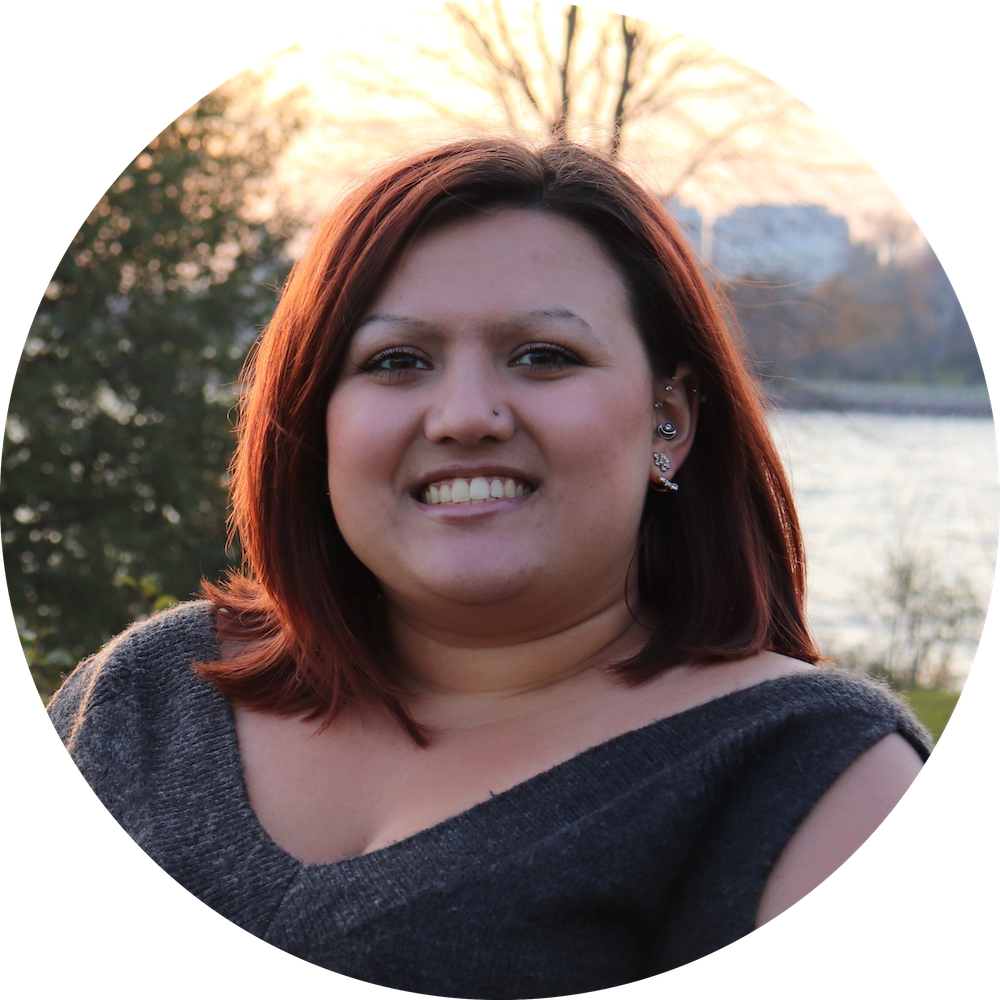
Simran Nerval
Talk Titles:
The Growth Spurt of the Early Universe
Learn about some of the earliest moments of the universe! This talk will discuss inflation which is a time period where the universe underwent exponential expansion in a fraction of a second after the Big Bang.
Talk Languages:
English
Simran Nerval (she/her) is a PhD candidate at The Dunlap Institute for Astronomy and Astrophysics and The David A. Dunlap Department of Astronomy and Astrophysics at the University of Toronto. She studies a time period known as inflation, the exponential expansion of the universe within a fraction of a second after the Big Bang. She uses a combination of theory, simulations, and data analysis to determine constraints on inflationary models. Simran received her Honours Bachelor of Science in Physics and Astronomy from the University of Toronto and her Master of Science in Astroparticle Physics and Cosmology from Queen’s University. Alongside her research, she works on various outreach and EDI initiatives including coding and astronomy camps for high school students with Coding the Cosmos in order to promote enthusiasm for science in youth and advocate for diversity.
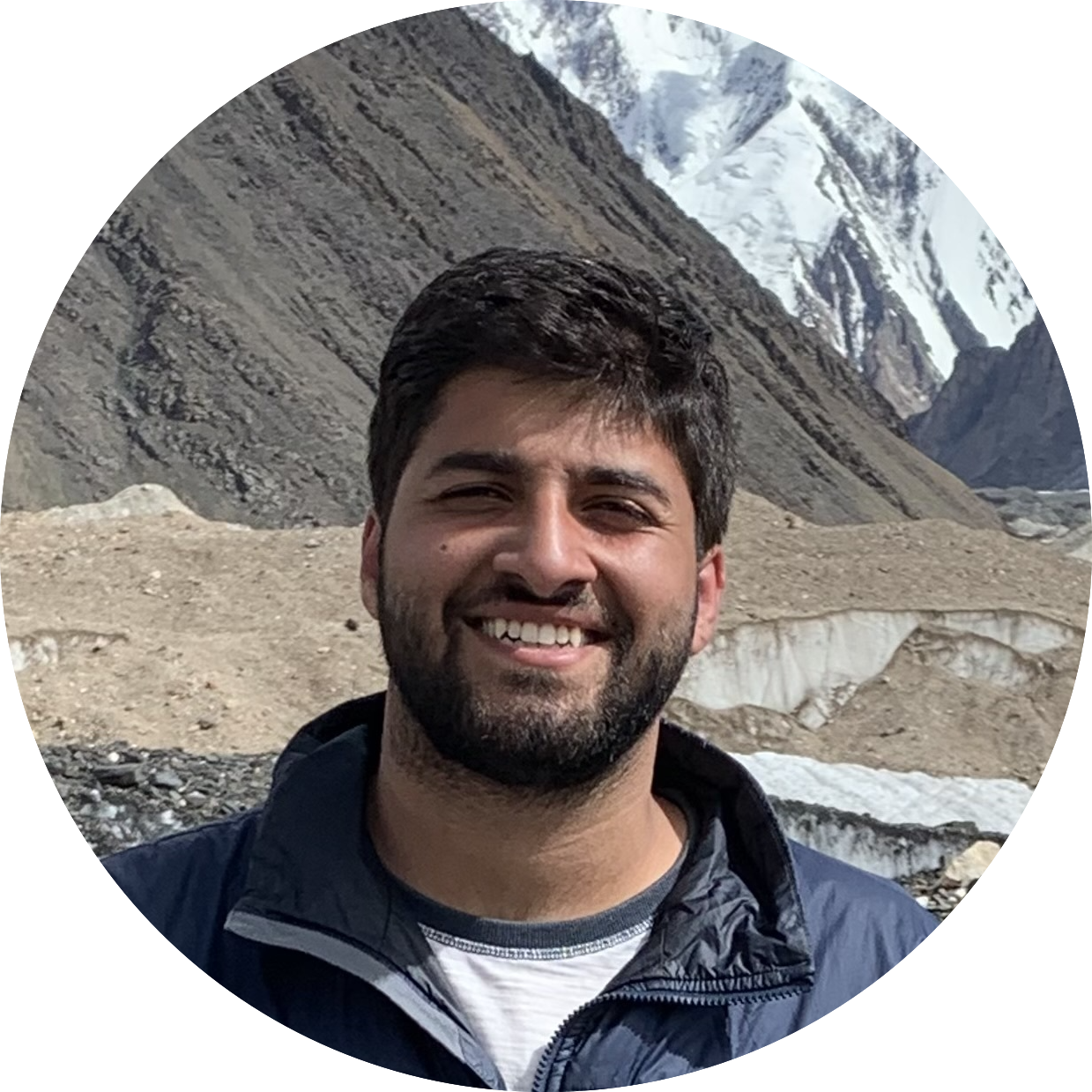
Emaad Paracha
Talk Titles:
Astronomy from the Stratosphere
Space telescopes like Hubble are very expensive, and ground telescopes could be affected by so many problems, light or thermal pollution, weather, and more. Explore how researchers found a perfect balance between the two by building balloon-borne telescopes, where, for a ground-telescope budget, you can get space-telescope quality science!
What is the universe made of?
You can see so much around you, buildings, trees, clouds, rain, and more. But is that what the universe is really made of? When we study the universe, we get a much different answer. Learn about how scientists detected the presence of invisible “dark matter” and what that revealed about our universe, and how we are studying it today.
Houston, can you hear me? Communications in space and near-space
Space isn’t as far as you might think, a satellite at 160km above Toronto may be closer to you than Montreal. But communicating could take longer than your flight to Montreal. Explore the challenges with communicating in space and near-space environments and the strategies researchers have employed to make it easier, better, and faster to transmit data between Earth and space.
The sky is not the limit: Reach for the stars
In a talk geared towards younger students, explore how by studying astrophysics, you’re not only uncovering the universe’s mysteries, but you are also equipping yourself with valuable skills for a range of careers. Discover the endless possibilities in the exciting world of astrophysics and why you should reach for the stars!
Talk Languages:
English, Urdu
Emaad Paracha is a PhD candidate in physics at the University of Toronto and works on helping build, integrate, and launch balloon-borne telescopes with the balloon astrophysics group advised by Professor Barth Netterfield. He was a key member of the SuperBIT team, a balloon-borne imaging telescope that flew on NASA’s Super Pressure Balloon to the stratosphere with the goal of studying dark matter in galaxy clusters using weak lensing. Besides his research work, he is passionate about helping promote astrophysics research in schools and actively mentors students in bringing up the next generation of space researchers and explorers.
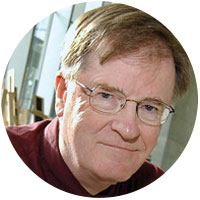
Dr. John Percy
Talk Titles:
The Amazing Universe
The universe that astronomers have discovered and studied is just as exciting as the imaginary universe in science fiction and video games — and it’s real!
Toronto’s Astronomical Heritage
A presentation on how the history of astronomy in Toronto connects with with the growth of our city and our country. See John’s Cosmos From Your Couch episode on this topic here!
The Birth, Life, and Bizarre Deaths of the Stars
An overview of the birth, evolution, and death of stars, including white dwarfs, neutron stars, and black holes.
Common Misconceptions about the Universe: From Everyday Life to the Big Bang
A tour of the universe, highlighting misconceptions which the public have about astronomical topics. These range from true misconceptions, to problems of astronomical language, to widespread pseudoscientific beliefs, to ones based on a literal interpretation of scripture.
Archaeoastronomy: The Astronomy of Civilizations Past
A presentation on archaeoastronomy a.k.a. cultural astronomy.
Talk Languages:
English
John Percy is Professor Emeritus at the University of Toronto, in Astronomy & Astrophysics, and in Science Education. His research deals with the nature and evolution of the stars. He is also active in astronomy education, at all levels, throughout the world. He has received many awards for his work in education and outreach, most recently the 2013 Education Prize of the American Astronomical Society.

Dr. Michael Reid
Talk Titles:
Misconceptions about the Big Bang
The Big Bang Theory is backed by a century of evidence. Yet, it’s one of the most frequently misunderstood ideas– even by experts! In this talk, we’ll explore what the Big Bang Theory does and doesn’t say about tricky topics such as how and where the universe began, what shape it is, what’s outside it, and how it will end. Suitable for grade 9 through adults.
Black Holes
What is a black hole? Where do they come from? How do we know for sure that they exist? What would it be like to fall into one? This introduction to black holes covers all the essentials. Suitable for grades 6 through adults.
The Lives and Deaths of Stars
Did you know that some of the stars you can see in the sky are younger than our species, while others are nearly as old as the universe itself? In this visually rich talk, we’ll use images from the latest telescopes to explore the births, lives, and spectacular deaths of stars. Suitable for all ages.
The Search for Another Earth
Are we alone in the universe? The search for answers to this question is a central theme of modern astronomy. In this talk, I show how astronomers using the latest telescopes such as TESS and JWST are getting closer and closer to being able to declare that we’ve found “another Earth.” Suitable for all ages.
Talk Languages:
English
Dr. Reid’s research area is star formation–the process of turning vast clouds of gas and dust into new stars. He teaches several classes in introductory astronomy for non-scientists and frequently gives public talks on topics spanning all of astronomy. He will happily create a new presentation on a topic of your choice, or can deliver one of his prepared favourites.
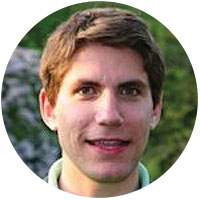
Dr. Hanno Rein
Talk Titles:
Exoplanets: Strange New Worlds
Dr. Rein will provide a visual and interactive overview of recently discovered planets outside our Solar System. The audience will learn about their characteristics, what we think we know about their formation history, and how that relates to habitability. Suitable for grades 8 and up.
Talk Languages:
English
Dr. Hanno Rein wants to find out how planetary systems form. He maintains a large database of all discovered exoplanets, planets outside our own Solar System. Using large super-computers, he is simulating the evolution of planets and Saturn’s rings.
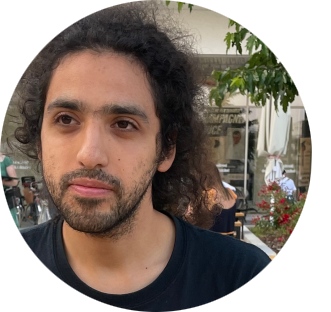
Dr. Gustavo Medina Toledo
Talk Titles:
The Milky Way and the exploration of the distant Universe
How are can we understand the Universe if it looks so far from everything that we have ever experienced? We will learn about our place in the Universe, interstellar travel, and the ultimate fate of our Galaxy, in an exciting journey through space and time.
Talk Languages:
English, Spanish
Gustavo Medina Toledo is a postdoctoral researcher at the David A. Dunlap Department of Astronomy & Astrophysics. Gustavo obtained his PhD at the University of Heidelberg in Germany, and he holds a Master’s degree from Universidad de Chile. His research focuses on the exploration of remote regions in the halo of the Milky Way using variable stars as tracers of stellar populations of different ages. He specializes in observational astronomy and the use of large data sets from wide imaging and spectroscopic surveys, which are carried out with large telescopes and state-of-the-art techniques.


